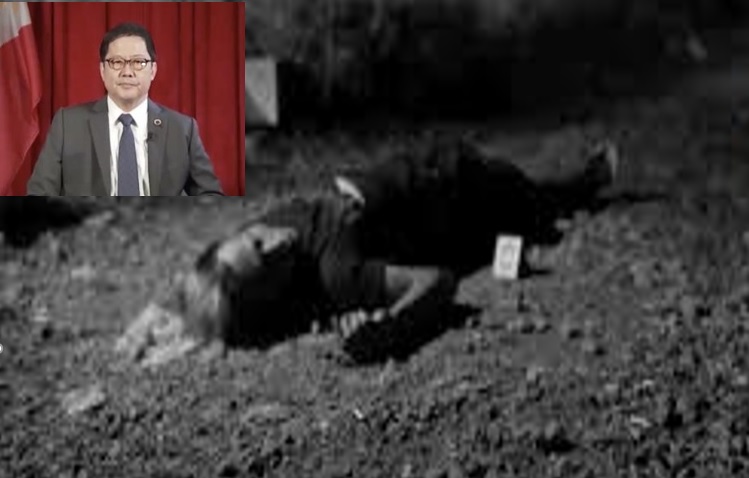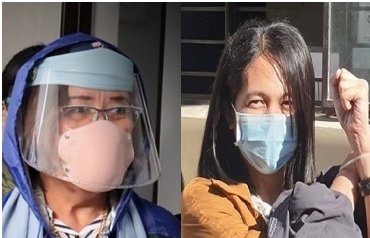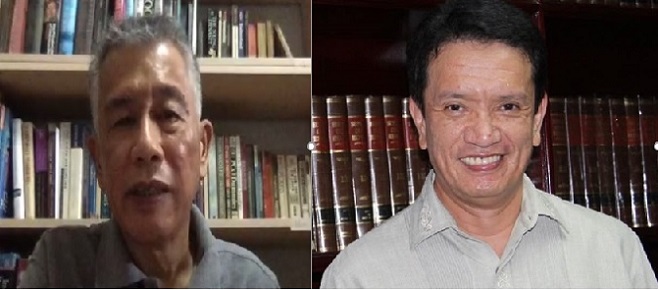Several times, President Rodrigo Duterte has proudly taken responsibility for the killings in his bloody campaign against illegal drugs. It goes without saying, therefore, that the prosecution of the drug-related killings would have to reach his level.
If he thinks that citing “national security” will save him and the top officials who implemented his war on drugs, including his first police chief, now Sen. Ronald “Bato” Dela Rosa, from being accountable for all those killings, he is wrong.
The Office of the Solicitor General (OSG) already used that line in the 2018 case of Aileen Almora, et al. Vs. Director General Ronald Dela Rosa, et al./Sr. Ma. Juanita R. Daño, et al. Vs. The Philippine National Police, et al. and the Supreme Court vehemently rejected it.
The Supreme Court’s words: “It is simply ridiculous to claim that these information and documents on police operations against drug pushers and users involve national security matter.”
In his Talk to the People last May 31, Duterte lengthily defended the Philippine National Police in refusing to make public records of police operations in the war on drugs.
He said: “Now this is really a lesson for the human rights; everyday until now nandiyan ‘yan. I suggest that you go to the police and look into the records of these deaths. Now gusto ninyong kunin, may — hindi namin maibigay lahat not because we are hiding some facts that [are] known to us, unknown to you. Eh kasali na dito ‘yong — eh national security issue ‘to eh kagaya rin ng mga NPA. We have records that those who have died but who have derogatory records in our files and may mga references sila na tao and what they do, we cannot divulge it to anybody but only to the military and to the police.”
He said he himself has not asked for it. “I do not even know kung sino ‘yang mga ‘yan. I do not ask [for] it and I do not bother to really go out of my way knowing because kasali ako sa mga tao na hindi alam. What I get is the result of the operations. But as to the basis and to the people involved and suspects and ‘yong mga references nila at ‘yong mga sources ng information, this cannot be revealed,” he added.
He further said: “As a matter of fact, ang sinabi ko itong mga pulis o military who perform their duties and had to kill their adversaries, lalo na sa droga pati itong mga NPA, hindi ho namin puwede ibigay lahat. You can go into the… maybe query as to how the battle was fought, how the gunfight started. But pero kung sabihin mo what prompted the police and the military to go into this kind of operation based on their reports and collated mga dossier, hindi ho ninyo puwedeng pakialaman ‘yan. Truth — as a matter of fact, sabihin ko totoo ‘yan. Maski tanungin ninyo, ni hindi ako minsan nagtanong kung ano-ano ‘yan.It’s because I know that it’s just confidential. And kung hindi nila ipresenta sa akin, I do not ask for it.
“Kaya ako mismo hindi naka — nakakakita ng mga records na ‘yan. And I can understand when the military and the police would withhold them kasi hindi talaga dapat malaman ninyo. Iyan ang na … you know … hindi dito sabihin mo na public documents. “
It is Duterte’s choice if he is not interested to see the documentation of the killings based on his orders. But the public should not be prevented from knowing the truth.
The Supreme Court was very clear about this when the OSG refused to submit documents demanded by the relatives of the victims which include, among others, list of persons killed in legitimate police operations from July 1, 2016 to Nov. 30, 2018; list of deaths under investigation from July 1, 2016 to November 30, 2017; list of Chinese and Fil-Chinese drug lords who have been neutralized; and, list of drugs involved, whether shabu, cocaine, marijuana, or opioids.
The OSG unilaterally categorized the documents and claimed that those under Category 1 “contain very sensitive information with law enforcement and national security implications.”
The Supreme Court reprimanded the OSG, saying it “cannot unilaterally arrogate to itself the power to determine which documents it should furnish petitioners.”
The High Court also reminded the OSG of its earlier Resolution that “the requested information and documents do not obviously involve state secrets affecting national security.”
“The information and documents relate to routine police operations involving violations of laws against the sale or use of illegal drugs. There is no showing that the country’s territorial integrity, national sovereignty, independence, or foreign relations will be compromised or prejudiced by the release of these information and documents to this Court or even to the public. These information and documents do not involve rebellion, invasion, terrorism, espionage, infringement of our sovereignty or sovereign rights by foreign powers, or any military, diplomatic or state secret involving national security,“ it added.
The High Court declared: “It is simply ridiculous to claim that these information and documents on police operations against drug pushers and users involve national security matter.”
Ridiculous, indeed!
***
This column appeared also in ABS-CBN online and VERA Files



